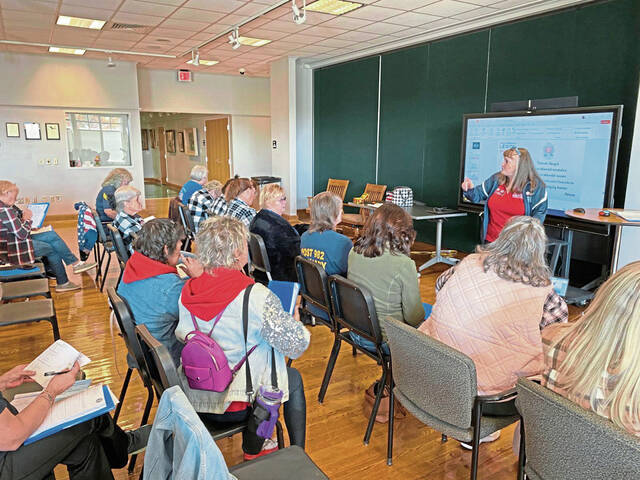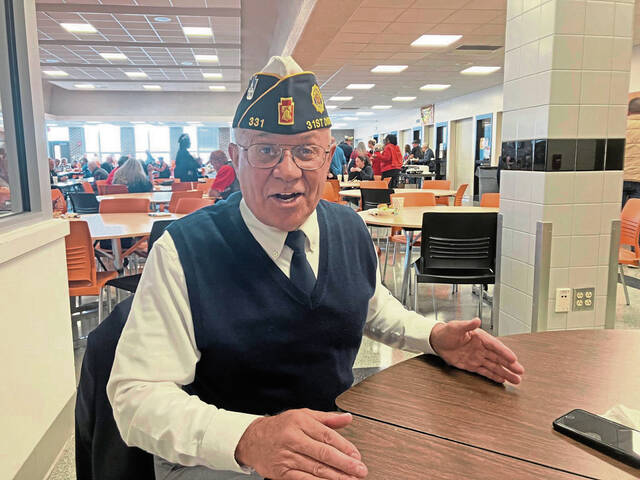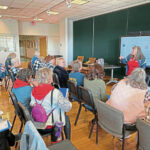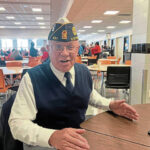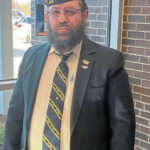The American Legion of Pennsylvania is hoping to attract more veterans who served in the Gulf War of the 1990s and 2000s and the War on Terror.
Its aging leaders want to be able to pass the torch onto the next generation to continue to fight for programs and benefits for veterans, leaders said Saturday.
The biggest challenge facing the American Legion is finding new members for its 674 posts statewide, said James “Woody” Van Horn, adjutant for the American Legion Department of Pennsylvania, at a “Legion College” program at Greater Latrobe High School.
“We’re losing members,” Van Horn said. “The Vietnam War generation is dying off, and that’s the main part of our membership. They lose us (Vietnam War generation) as their lobbying arm, and there is no one there to lobby Congress” for programs and benefits.
The American Legion in Pennsylvania will have to replace about 60% of its membership in the coming years, said James Drnjevich, commander for American Legion District 31. The district covers all of Westmoreland County’s 27 posts with 4,300 veterans, plus auxiliary members Legion Riders and sons of legionnaires, according to Drnjevich, who served in the Marine Corps Reserve and the Army Reserve.
“We’re trying to recruit new members who served in the Gulf War and the War on Terror … when their primary focus is raising their family and their jobs,” Drnjevich said.
Drnjevich said there’s a pool of some 800,000 veterans in Pennsylvania from which they can draw upon.
“You can share your military experience,” Drnjevich said.
James Esquevo of Latrobe, a member of American Legion Post 982 of Unity, said he believes that a lot of veterans don’t have an interest in joining once they leave the military. But joining a veterans organization offers something they don’t find elsewhere.
“It offers the camaraderie that we have as veterans,” Esquevo said.
The 400 veterans and Legion Auxiliary members attending the Legion College on Saturday learned about services offered by the Legion and what’s available for the 116,000 members who are veterans.
The more the Legion’s auxiliary service leaders are able to get their posts to do for people, the more they’ll know who they are. Thats what Lynne Edwards-Akers, leadership chairman of the American Legion Auxiliary of Pennsylvania, told a class of auxiliary leaders.
“We want them to know about the programs and the mission of the American Legion Auxiliary. If we don’t keep our members informed, how will they know the services and benefits, like scholarships, that we have,” said Edwards-Akers of Williamsburg, Blair County.
Among those attending were Laura White, 69, of Washington, whose father was in the Army when he was killed in an accident while home on leave.
“If it wasn’t for the help of the VFW and the American Legion … I don’t know what we would have done,” said White. Her father died when she was 2, leaving her mother widowed and pregnant with a child. “They engulfed us and embraced us (with love and caring),” White said.
“I am giving back, absolutely,” White said.
Army veteran Caroline Dunkin of Washington, a member of American Legion Post 175 of Washington, said she’s a member of the American Legion as a way of helping fellow veterans.
“There’s still so many service members that need help,” Dunkin said. “I want to give back to them.”


